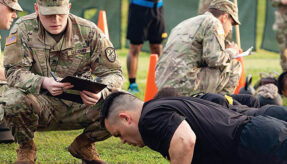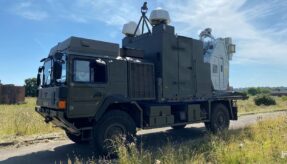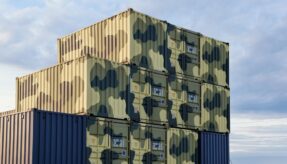
Writing for Defence Online, QinetiQ’s Raphael Pascual – Principal Psychologist, Human Behaviour and Systems and Simon Bowyer – Principal Psychologist, Psychology and Systems examine the critical role that trust plays within global defence teams
Trust underpins all relationships, not least within the military. As former US Army Chief of Staff, General Odierno writes, “without trust, we do not have a profession”.
Research over the last three decades has solidified the vital role trust plays in team effectiveness.
The greater the interdependence between team members, the more trust matters, reflecting the importance of trust in military training and operations.
However, with the increase in global teams, coming together from different national and organisational cultures, using remote, virtual methods, ensuring teams are rooted in trust can be a challenge.
Teams have evolved, making interaction more complicated
Today’s cross-organisational objectives are increasingly met by the creation of ad-hoc teams, whose team members are, typically, completely unfamiliar with each other.
Also known as Swift Starting Action Teams (STATs), these teams are quickly brought together in agile ways to meet specific objectives before then disbanding – for example, cross-organisation procurement teams brought together to develop a technology, or multinational teams of military personnel supplemented by civilian staff.
Similarly, hybrid teams are those defined by their fluid (sometimes partly familiar) membership, such as when an emergency trauma team is brought together to provide urgent treatment for a patient.
These teams are often no longer built on proximity, or long-established loyalty.
Trust is also vitally important for virtual teams – especially considering the impact of increased remote working during the pandemic.
Even prior to COVID-19, researchers found that trust remains a key component of team effectiveness, particularly in relation to the extent to which individuals are willing to share information and knowledge and support each-other.
The global challenge of trust
Team performance is also likely to be shaped by organisational and national cultural differences relating to ways of working. In a military context, this may be reflected in an agile allied force formed of entities from different nations (who may also be distributed).
These agile requirements and lack of existing relationships can lead to misunderstandings of roles and responsibilities, and breakdowns in communication, which can, unsurprisingly, make it difficult to develop trust.
It has been suggested that multinational teams can find teamwork challenging if individuals hold in-group / out-group biases, or stereotypes and biases about diverse groups.
They may also hold mistaken, shared perceptions and assumptions for anticipated ways of working, likely to be exacerbated where the team is composed of multiple sub-teams, each bringing their own organisational culture, processes and expectations.
While increasingly advanced communication channels can aid coordination and operational abilities, trust issues can be further exacerbated when virtual teams have culturally diverse approaches to implicit versus explicit communication styles.
Swift trust for today’s – and tomorrow’s – diverse teams
It’s agreed that trust is central to team performance. However, there is an assumption it is a quality that can only be developed slowly over time.
This is not – and cannot – be the case. It is imperative that remote and increasingly diverse ad-hoc teams rapidly establish trust to work effectively.
The concept of ‘swift trust’ may help ensure the trust factor. In swift trust theory, a rapidly formed team, which has had little previous time to socialise, needs to be open to trust initially and then later seek to verify and adjust those early trust beliefs based on ‘social proof’ and interactions with others.
Swift trust is therefore founded on obtaining initial confirmation of technical (role) competence, with deeper teamwork-based trust potentially forming later.
The ability to develop swift trust should be viewed as a skill to incorporate into military training.
Modern teams must adopt innovative training approaches that focus on reinforcing the teamwork behaviours and attitudes associated with swift-trust mechanisms.
Teamwork training should therefore help ad-hoc and hybrid teams understand swift trust mechanisms and practice more generic teamwork skills.
These include providing open forums for communication and internal feedback, as well as approaches for managing any emerging team conflicts.
Swift trust training should also help team leaders tune into deteriorating or dysfunctional teamwork performance – particularly when operating virtually.
Final thoughts
There must be a proactive approach to engendering trust in teams, especially when those teams are globally based. A failure to do so jeopardises the effectiveness of those teams.
Administering team training should help team leaders and team members understand and recognise the particular challenges of remote teamwork environments and practice the behaviours required to be effective, both in synthetic and real-world training environments.
A deeper dive into our thoughts on the importance of trust in defence capability can be found in The Trust Factor report – a series of short essays exploring the topic.
If you would like to join our community and read more articles like this then please click here







